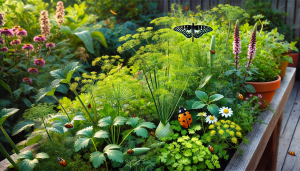By: Dr. Emily Grace , aromatherapist and holistic sexuality specialist

Have you ever heard about the green movement? You likely have, but do you actually understand what it means? There are thousands of individuals worldwide who are striving to live healthier lifestyles. For many, this involves turning to natural home remedies that are safe and avoiding ingesting large amounts of toxins. If you want to start avoiding toxins and treating ailments with natural home remedies, you are not alone. A little help to get started is always welcome, and understanding the reasons behind home remedies can be very beneficial.
Contents
Chapter 1: Reasons to Use Home Remedies
One of the primary reasons to use natural home remedies is to save money. Many people find that always running to the doctor is not a feasible option, especially when faced with the costs of medical bills. To obtain the best results, it’s crucial to understand that saving money and using natural home remedies often go hand in hand.
Visiting the doctor can also be extremely embarrassing in certain situations. Do you really want to explain to your doctor how you managed to glue yourself to yourself? Many people are not comfortable sharing overly embarrassing experiences with others, not even with someone trying to help them. In such cases, exploring available options and finding home remedies can help lighten the burden and avoid recounting embarrassing stories.
Natural home remedies are also wonderful for those who are not interested in ingesting toxins. While many people firmly believe in modern treatments, others do not think that taking medication for every minor symptom is the right solution. For these individuals, natural home remedies represent a significant amount of freedom that should not be overlooked. Treating minor issues like colds, earaches, and other small illnesses safely at home is possible without complications.

Chapter 2: Popular Home Remedies
Top 3 Home Remedies
If you had to determine the absolute best home remedies, it might take years. However, some remedies are widely known and used frequently. Here are three of the most popular and effective home remedies:
- Apple Cider Vinegar: This is a leading remedy used for various purposes. It helps control allergies, reduce sinus infections, and treat fatigue, acid reflux, and sore throats. Keeping apple cider vinegar in your house is always a good idea.
- Hydrogen Peroxide: This common remedy is used to treat wounds, clean excessive earwax, build stamina, and prevent the flu. The versatility and affordability of hydrogen peroxide make it a must-have.
- Baking Soda: This is another popular remedy with numerous uses. It can be used as a facial scrub, to treat stains, and to kill bacteria. Baking soda is great for avoiding problems associated with stains, smells, acne, and bacteria.
Starting with these highly effective remedies is a great way to build confidence in using home remedies.
Chapter 3: Myths About Home Remedies
Home Remedy Myths
While home remedies can be highly effective, some are too good to be true. It is essential to discern which remedies are feasible and which are not. For each effective remedy, there are also myths that can be dangerous. Here are some common myths:
- Butter for Burns: It is often said that butter can reduce the pain of a burn, but it can make it worse.
- Nosebleeds: Many believe that tilting your head back during a nosebleed stops the bleeding, but it can cause suffocation.
- Shin Splints: Running more to reduce shin splint pain is a myth. Resting the muscles is a better solution.
- Bee Stings: Squeezing the stinger can worsen the pain. Instead, scrape the stinger out to avoid squeezing more venom.
- Snakebites: Sucking out the venom with your mouth is dangerous and can lead to infection. Seek medical help instead.
Understanding these myths can help you avoid harmful practices and focus on effective remedies.

Chapter 4: Home Remedies for Specific Issues
Home Remedies to Disburse Bugs
Getting rid of pests naturally is great for the environment and cheaper than using chemicals. Here are some natural options:
- Herbs: Planting fennel, dill, cilantro, and parsley attracts Ladybugs, which eat harmful bugs.
- Praying Mantis: These insects eat many harmful bugs and are not harmful to people.
- Potatoes: Burying potatoes near plant roots can help identify and trap harmful bugs.
Home Remedies for Anxiety
Anxiety can be treated with natural remedies, such as:
- Reducing Alcohol Intake: Limiting alcohol can reduce anxiety.
- Getting Enough Sleep: A lack of sleep can increase anxiety.
- Taking B Vitamins: Supplements can help relieve anxiety symptoms.
- Limiting Sweeteners: Reducing sugar and artificial sweeteners can help.
- Reducing Caffeine: Cutting back on caffeine can lessen anxiety.
- Exercising: Physical activity can refocus your attention and reduce anxiety.
Home Remedies for Your Pets
Pets can also benefit from home remedies, such as:
- Pert Plus Shampoo: Recommended for getting rid of fleas and leaving pets smelling great.
- Vinegar: A safe and cheap cleaner for dirty ears.
- Rosemary Extracts: Helps build immunity in pet ears.
- Baby Powder: Stops bleeding if you cut your pet’s nails too short.
Getting Rid of Acne the Cheap Way
Common ingredients for acne home remedies include cucumber, lemon juice, and milk. Here are some remedies:
- Strawberry Leaves: Reduce swelling associated with acne.
- Orange Peel Paste: Helps reduce acne.
- Cucumber Paste: Prevents breakouts.
- Milk and Nutmeg Paste: Dries out acne.
- Mint Juice: Can be used alone or mixed with turmeric powder to reduce acne.

Conclusion

In conclusion, home remedies offer a natural, cost-effective way to treat various ailments. They provide an alternative to ingesting toxins and can be highly effective when used correctly. Understanding the benefits and limitations of home remedies can help you make informed decisions about your health. Remember to approach home remedies with confidence and a willingness to learn, and you will find success in natural healing.
Dr. Emily Grace is a certified aromatherapist and holistic sexuality specialist with a Ph.D. in Alternative Medicine. With over 15 years of experience, she specializes in using essential oils to promote sexual wellness and enhance intimacy. Dr. Grace conducts workshops and private sessions that integrate aromatherapy with sexual health practices, helping individuals and couples create a more intimate and harmonious relationship. Her approach combines the therapeutic properties of essential oils with modern sexuality counseling to foster overall well-being.


